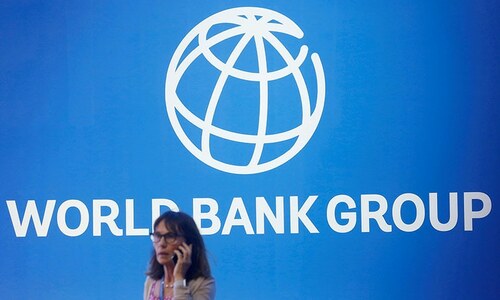LAHORE: Commerce Adviser Abdul Razak Dawood on Saturday said the country needs to go for geographic diversification of exports by using Transports Internationaux Routiers (TIR) Convention as it guarantees export to Europe and Central Asia via Iran and Afghanistan.
Addressing the business community at the Lahore Chamber of Commerce & Industry (LCCI), he said the demand of abolishing or reducing 17 per cent General Sales Tax (GST) cannot be accepted following the International Monetary Fund’s programme and guidelines.
“Unfortunately, Pakistan never used the TIR Convention under which we can send our goods to various European and Central Asian countries through land routes (both by road transport and train) via Iran, Turkey and Afghanistan. Under TIR, our trucks (carrying goods in containers), once checked and sealed in the home country, cannot be stopped and checked at any border on the way,” the adviser said.
“Afghanistan has assured us that they would not stop our trucks carrying goods for various countries. Similarly, there is no issue on the part of Iran,” he said. Mr Dawood added that a truck carrying mangoes from Multan successfully reached Uzbekistan via Afghanistan this year from while the fruit was sent to Moscow in another truck.
Rules out abolishing or reducing sales tax
It may be mentioned that the National Logistics Cell (NLC) trucks carrying containers loaded with goods reportedly reached Istanbul, Turkey and Baku Azerbaijan via Tehran on October 7 under the TIR admission. The vehicles had moved from Karachi on September 27 and completed the journey of over 5,000 kilometres within 10 days. The country’s first road movement received an overwhelming response from the government and business communities of both Turkey and Azerbaijan as commercial run was made possible with all-out support of Iran.
When a businessman asked the adviser that whether or not the country was well-equipped to deal with the situation smoothly if the number of trucks carrying goods increased in future under the TIR at various land borders with Afghanistan, including Chaman and there would be no issue in this regard, the adviser said he had recently participated in a high-level meeting wherein the representatives of security institutions and law enforcement agencies were also present.
“During the meeting, the participants asked what the Ministry of Commerce wants on the issue of Afghan transit trade. I told them that we want Pakistan to become trading regional hub that could be predictable, reliable and cost-effective,” he said while sharing proceedings of the meeting. “I am really trying hard to promote the transit trade. But I cannot give you guarantee as there are many issues. The issue is that things in Pakistan cannot move smoothly. But we must hope for the best,” he added.
Talking about the methods for enhancing exports massively as a way forward to reduce reliance on the international funding institutions, Mr Dawood said the country’s exports were increasing fast. “Our textile exports alone have jumped 10 to 15 billion and now are moving ahead to attain the target of $20bn by June, 2022,” he said.
He maintained that to increase volume of the overall exports, the country is required for diversification in traditional export products and destinations (countries). The ministry, he said, did a detailed analysis on this issue since the European Union too had sought diversification of export products.
“After analysis, we found that there was only a 7pc rise in our traditional export products [textiles, surgical goods etc] to traditional countries [Europe, America etc]. But there was an amazing response in non-traditional goods [such as rice] exports to traditional countries as the increase was 60pc. But the response was more encouraging when we saw a massive rise trend of 77pc in the non-traditional exports to non-traditional countries,” he explained.
Admitting the fact of the fast-widening trade deficit and increase in the imports, he said his ministry also observed the situation in-depth and divided the products, being imported, in two parts as good imports and bad imports. “If the imports are raw material, machinery etc, we take these as good imports since these are expanding industry and creating jobs. But the bad imports are the luxury items, petroleum products,” he said.
Published in Dawn, October 31st, 2021














































